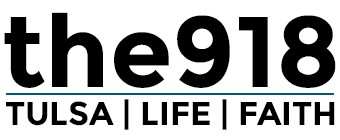The big difference between better and good
by Aaron Tiger
Living with two small children means that a house can get messy in a heartbeat. Toys get dumped out, cups get left behind, and clothes are not always put where they belong. Sometimes, I try to clean up. I remember thinking one time, as I was taking a break from cleaning, “That looks a lot better,” so I stopped. As if “better” was the goal.
There is a big difference between “better” and “good.”
For a long time, I thought that race relations in our country were “good,” simply because they were “better.” There was not legalized slavery anymore, so that is better. We have black leaders in government including the President, so that is better. Our schools are integrated, so that is better. But just because things are better than they were, does not mean that they are good.
When a black person in America is eight times more likely to be killed than a white person, that is not good. When an average black household earns 59% of what a white household earns, that is not good. When a black student is three times more likely to be expelled or suspended than a white student, that is not good.
Both “better” and “good” have value.
The only way life can be “good” is because it has continually gotten better. My five-year-old son loves to draw and color, and he has gotten so much better over the past year. However, his pictures are not that “good.” No one is buying his art. No museum is displaying it, but as a Dad, I’m thrilled to see how much better he is. We would be doing a disservice to the sacrifice that so many people made for racial equality over the past 150 years without acknowledging that racial opportunities are “better.”
However, we would be doing a disservice to the millions of black Americans who live today, if we took the “better” and thought it is “good enough.” One definition of goodness is “meeting God’s standard.” In Galatians, the apostle Paul says that “goodness” is one of the fruits of the Spirit. Goodness is a result of living faithfully as a follower of Jesus Christ. When Jesus walked on the earth, he embodied goodness. He made time for the outcast and the lame because that is good. He ate with sinners because that is good, and he sacrificed himself for all because that is good.
We have not met God’s standard in Tulsa. In 2011, the John Hope Franklin Center for Reconciliation, based here in Tulsa, just a few miles from our church, completed a survey which concluded that “race relations are poor in Tulsa.” In fact, the survey found that when it comes to racism in Tulsa, eight out of ten African Americans said they’ve experienced it, followed by seven out of ten people of Hispanic origin and nearly half of Native Americans, while, only one in five white people believed they had experienced racism.
But there is hope, because the same survey also found most of the survey respondents believe that “communication is key” as we seek to heal these centuries old wounds. How do we keep the arc bending towards good? It starts with communication. If you’re like me and and just starting to realize the difference between “better” and “good” in terms of race relations, it is important to realize that a key, and perhaps the most important, component in communication is listening.
If this act of racial hatred in Charleston has woken you up as it has me, before we put our grief into action out of a desire to “do something” in response, let us take some time to listen and learn from our neighbors who’ve been doing this important work for a long time. If you are looking for resources locally, I highly recommend the John Hope Franklin Center for Reconciliation and the YWCA. With missions of racial reconciliation and eliminating racism, these organizations are doing great things in Tulsa and if you are looking for a way to plug into this important work, I would urge you to contact one or both of them. The Center of Reconciliation at Duke Divinity School also has some resources to check out.
Talking about racism is tough.
I had to google “black or African-American,” as I wrote this article because I was not sure what was the best term to use. As you read, learn, and work with others in the important work of reconciliation in the resources above, begin to pray and think about who you could engage in conversations and listen to their experiences.
There is an old saying that says, “Good, better, best. Never let it rest. Until your good is better, and better is your best.” As a Pastor, I would change that to this, “Good, better, best. Never let it rest. Until your good is better, and better is God’s best.” Martin Luther King Jr. once said that, “the arc of the moral universe is long, but it bends towards justice.” It seems to me that this arc only bends because when people, expressing their faith in love, don’t settle for “better,” but keep working for God’s best.
Aaron Tiger is a minister at FUMC Tulsa, a dad, a husband, and a child of God. He is the lead contributor for the918.org. Special thanks to Adriane Jaynes for helping with the resources for this article.


Leave a Reply